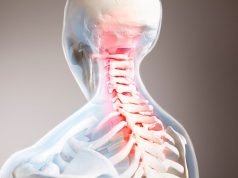Long Working Hours May Increase Risk of Developing A-Fib
Could help explain previously observed increased risk of stroke among those working long hours
Idarucizumab Shows Reliable Reversal of Dabigatran
Effective for dabigatran reversal among patients with uncontrolled bleeding, undergoing urgent surgery
Large Study Shows Eating Better at Any Age Can Prolong Life
Researchers suggest it's never too late to benefit from a commitment to eating healthier
Mortality Up With Impaired LV Global Longitudinal Strain in CKD
Worse prognosis for patients with severely impaired left ventricular global longitudinal strain
Medicaid Enrollees Are Satisfied With Their Health Care
Enrollees rate their overall health care at 7.9, on average, on a scale of 1 to 10
No Evidence CPAP Reduces Risks of CV Events, Mortality
Findings do not support treatment with goal of prevention of these outcomes, researchers say
Doctors Should Also Advise Healthy People on Diet, Exercise
USPSTF urges doctors to talk to low-risk, in addition to high-risk, adults about lifestyle
Rivaroxaban OK for Stroke Prevention in Cancer Patients
Safety, efficacy in cancer patients similar to the general population
Chest CT Is Increasingly Being Used in COPD Assessment
CT can provide information on comorbidities, including coronary artery disease, osteoporosis
Health Service Use Unchanged From 1996-1997 to 2011-2012
Expenditures for various categories of medical services increased in almost every category assessed



















